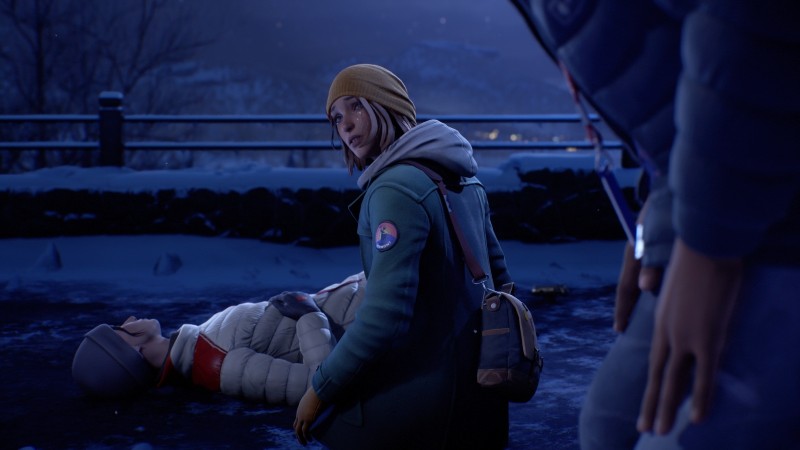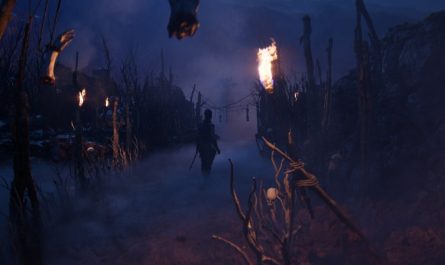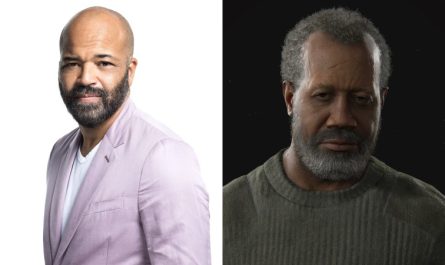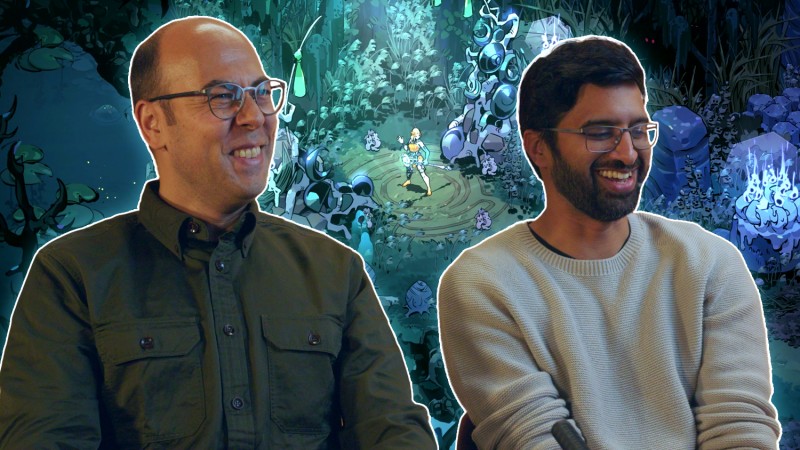Square Enix held a special livestream today for Life is Strange: Double Exposure, which was revealed during last week’s Xbox Games Showcase. The 48-minute presentation sits down with the game’s developers and performers to shed new light on Max Caulfield’s return to the franchise and her new powers while showing off extended gameplay.
The story seemingly unfolds a few years after the events of Life is Strange. Max has moved far away from Arcadia Bay for a fresh start and now works as an artist-in-residence at Caledon University in upstate Vermont. She has sworn to never use her time-rewind ability again, and hasn’t since the first game’s conclusion. Despite this, Max’s power has evolved. She can now travel between two timelines, an ability called Shift. Unfortunately, she only discovers this power after stumbling upon the sudden murder of her new friend, Safi.
Deck Nine, who developed Life is Strange: Before the Storm and True Colors, describes the game as a supernatural murder mystery. Max will travel across two realities: her present one and an alternate timeline where Safi is still alive but very much in danger. In the reality where Safi is killed, Max must find the culprit. In the timeline where Safi lives, she must prevent her murder. Solving and preventing the same crime involves searching for clues across both timelines and interacting with two versions of every character, whose behavior and relationship to Max changes based on the timelines, circumstances, and your choices. Like True Colors, Double Exposure is a single release divided into episodes.
Of course, the million-dollar question for fans is how Double Exposure addresses Life Is Strange’s two endings. Deck Nine states the game includes a conversation between Max and Safi about Arcadia Bay, which will allow players to pick the ending they chose. This essentially determines Double Exposure’s canon, and your choice of ending will be reflected in Max’s thoughts, journals, text messages, and conversations with characters going forward. An example we see is a conversation where Safi asks Max who “the blue-haired girl” is to her, presenting a choice to establish Chloe’s relationship to Max.
In terms of gameplay, Max has lost her original time-rewind power. Instead, she can instantaneously swap timelines in certain spots to explore two versions of the same space. She’ll use this power to solve puzzles and circumnavigate inaccessible spaces (for example, a locked door in one timeline may be unlocked—or Max learns how to unlock it—in the other one). She can also use a “pulse” ability to extend her supernatural senses to determine weak points between the timelines, allowing her to see and hear ghostly glimpses of people and objects in the alternate reality without Shifting to it. Using this, she can eavesdrop on characters in the other timeline for intel and stealthily track suspects.
Of course, beyond the murder mystery, Max will have to deal with the social drama of working on a college campus. As its artist-in-residence, she serves as a mentor figure to younger students, which she may or may not use to her advantage. An extended gameplay video shows Max hanging out with Safi and her best friend Moses to watch a meteor shower. In addition to showing off some of the choices that can steer this scene in different directions, we also see Max’s camera come into play, where she can capture photos of her friends. We also see the events leading up to Safi’s murder.
Life is Strange: Double Exposure looks promising, and as a fan of the original, I’m looking forward to hanging with Max again and solving a new mystery. It launches on October 29 for PlayStation 5, Xbox Series X/S, and PC.
Square Enix held a special livestream today for Life is Strange: Double Exposure, which was revealed during last week’s Xbox Games Showcase. The 48-minute presentation sits down with the game’s developers and performers to shed new light on Max Caulfield’s return to the franchise and her new powers while showing off extended gameplay.
The story seemingly unfolds a few years after the events of Life is Strange. Max has moved far away from Arcadia Bay for a fresh start and now works as an artist-in-residence at Caledon University in upstate Vermont. She has sworn to never use her time-rewind ability again, and hasn’t since the first game’s conclusion. Despite this, Max’s power has evolved. She can now travel between two timelines, an ability called Shift. Unfortunately, she only discovers this power after stumbling upon the sudden murder of her new friend, Safi.
Deck Nine, who developed Life is Strange: Before the Storm and True Colors, describes the game as a supernatural murder mystery. Max will travel across two realities: her present one and an alternate timeline where Safi is still alive but very much in danger. In the reality where Safi is killed, Max must find the culprit. In the timeline where Safi lives, she must prevent her murder. Solving and preventing the same crime involves searching for clues across both timelines and interacting with two versions of every character, whose behavior and relationship to Max changes based on the timelines, circumstances, and your choices. Like True Colors, Double Exposure is a single release divided into episodes.
Of course, the million-dollar question for fans is how Double Exposure addresses Life Is Strange’s two endings. Deck Nine states the game includes a conversation between Max and Safi about Arcadia Bay, which will allow players to pick the ending they chose. This essentially determines Double Exposure’s canon, and your choice of ending will be reflected in Max’s thoughts, journals, text messages, and conversations with characters going forward. An example we see is a conversation where Safi asks Max who “the blue-haired girl” is to her, presenting a choice to establish Chloe’s relationship to Max.
In terms of gameplay, Max has lost her original time-rewind power. Instead, she can instantaneously swap timelines in certain spots to explore two versions of the same space. She’ll use this power to solve puzzles and circumnavigate inaccessible spaces (for example, a locked door in one timeline may be unlocked—or Max learns how to unlock it—in the other one). She can also use a “pulse” ability to extend her supernatural senses to determine weak points between the timelines, allowing her to see and hear ghostly glimpses of people and objects in the alternate reality without Shifting to it. Using this, she can eavesdrop on characters in the other timeline for intel and stealthily track suspects.
Of course, beyond the murder mystery, Max will have to deal with the social drama of working on a college campus. As its artist-in-residence, she serves as a mentor figure to younger students, which she may or may not use to her advantage. An extended gameplay video shows Max hanging out with Safi and her best friend Moses to watch a meteor shower. In addition to showing off some of the choices that can steer this scene in different directions, we also see Max’s camera come into play, where she can capture photos of her friends. We also see the events leading up to Safi’s murder.
Life is Strange: Double Exposure looks promising, and as a fan of the original, I’m looking forward to hanging with Max again and solving a new mystery. It launches on October 29 for PlayStation 5, Xbox Series X/S, and PC.Read MoreGame Informer



